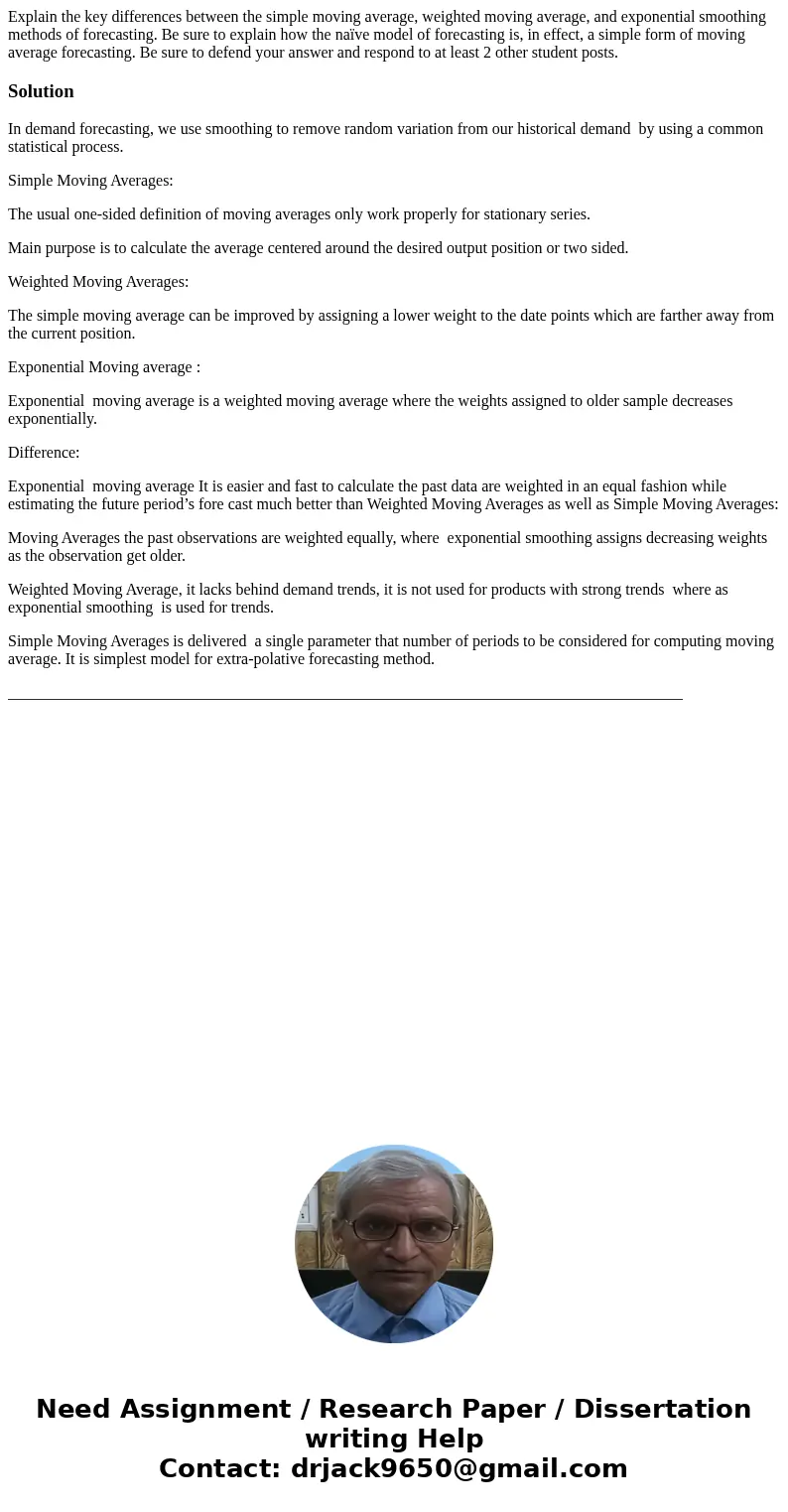Explain the key differences between the simple moving averag
Explain the key differences between the simple moving average, weighted moving average, and exponential smoothing methods of forecasting. Be sure to explain how the naïve model of forecasting is, in effect, a simple form of moving average forecasting. Be sure to defend your answer and respond to at least 2 other student posts.
Solution
In demand forecasting, we use smoothing to remove random variation from our historical demand by using a common statistical process.
Simple Moving Averages:
The usual one-sided definition of moving averages only work properly for stationary series.
Main purpose is to calculate the average centered around the desired output position or two sided.
Weighted Moving Averages:
The simple moving average can be improved by assigning a lower weight to the date points which are farther away from the current position.
Exponential Moving average :
Exponential moving average is a weighted moving average where the weights assigned to older sample decreases exponentially.
Difference:
Exponential moving average It is easier and fast to calculate the past data are weighted in an equal fashion while estimating the future period’s fore cast much better than Weighted Moving Averages as well as Simple Moving Averages:
Moving Averages the past observations are weighted equally, where exponential smoothing assigns decreasing weights as the observation get older.
Weighted Moving Average, it lacks behind demand trends, it is not used for products with strong trends where as exponential smoothing is used for trends.
Simple Moving Averages is delivered a single parameter that number of periods to be considered for computing moving average. It is simplest model for extra-polative forecasting method.
_____________________________________________________________________________________

 Homework Sourse
Homework Sourse